Council of the Wild Gods
images | courtesy Yellowstone National Park
Bison grunted and rolled amidst sagebrush, stirring clouds of dust. I made a wide arc around the herd. A coyote sprung straight up and landed, like a cartoon, snout buried. Sandhill cranes gargled, wings outstretched for landing. I had been walking for hours, offering wild prayers to the land, creatures, snowy peaks sharp against the western sky. If I had another life, I’d forgotten it.
The bison began to cluster until individuals disappeared into a mass of brown fur wearing half-moon horns. Flowing over the undulating land, the herd seemed a single being. Cowbirds flew in concert with bison. Sandhill wings fanned in a synchronized dance. Grassy green fur emerged on the flanks of hills.
Hoofprints of bison impressed the ground. Boots protected my winter-soft, human feet and reminded me that I would walk home, sit at a desk, go to the market, cook on a stove, see a film, sleep in a bed—so unlike the Others whose lives pressed into my awareness that afternoon, whose wilder psyches entwined with, and tugged at, my own.
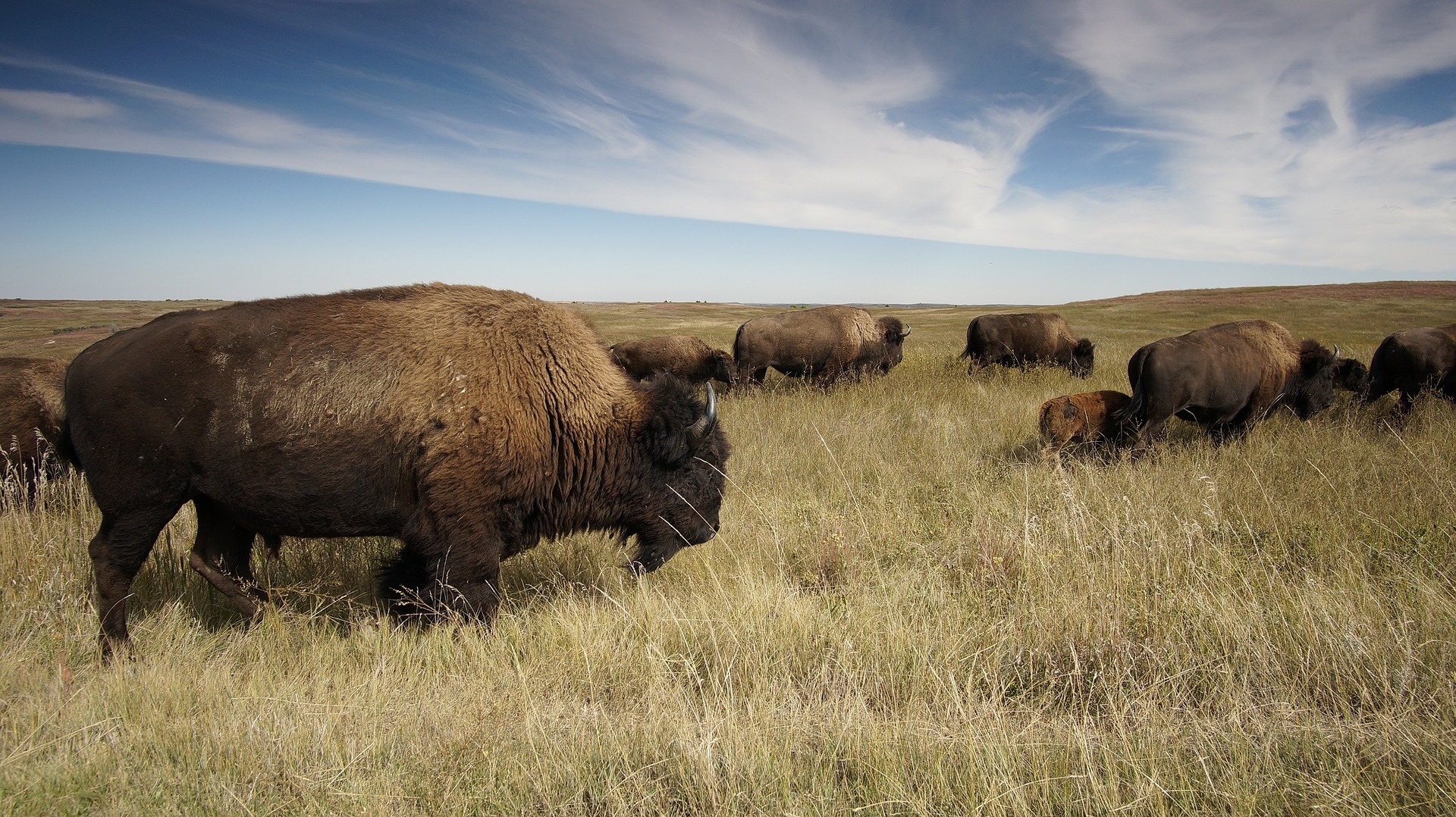
I had an amateur ecologist’s understanding of the moods and rhythms of rivers and peaks, creature migrations, sagebrush plains, raptors and voles. But on that day, the land presented itself as a body. The features and creatures revealed themselves as cells. The cells morphed into species; species and landforms shapeshifted into organs of Earth’s body—organs with unique perceptions, original expressions. Together, forming a larger body, an immense intelligence, an enormous, breathing, wild organism.
In that entanglement of bison and coyotes, Sandhill cranes and emerging grass, questions bellowed forth. It seemed the wild Earth asked, “What is necessary about human beings? What do humans offer to the community of life?”
Especially now—amidst massive floods, fires, glacier melt, the diminishment of Earth’s life support systems, and the spectacularly corrupt race to amass billions at the expense of everything dear—what do human people offer?
I lived, for a long spell, amidst a complex organism called the Greater Yellowstone Ecosystem. The land beckoned and seduced me; I was helpless to resist the allure of elk and grizzlies, big rivers and granite peaks, hot springs and mycelium. It did not occur to me until years later that the land may have had its own intentions in the seduction. It did not occur to me until later that the land’s own longings might be transmitted to a human being through the water, shared air, flesh of morels and berries.
When the wolves were returned to Greater Yellowstone, the wild gods sat in council once again. I’ve been privileged to press my ear against Earth, hoping to eavesdrop on that council of furred, finned, feathered, and rooted ones.

It may not be possible to erase a long encounter with the wild gods from the body; even a determined human being might not successfully return to the agreed-upon scramble for money and recognition of modern life without self-harm. An immersion in Earth’s wild psyche is not quite the same as an amazing vacation at Old Faithful. Once one wanders for a distance off-trail, into the habitat of predators and horned mammals, everything is in question. Imagination can run unchecked in all directions. Big questions might paw out unexpectedly from the shadows.
Many years ago, in a wide-ranging conversation with environmental education students, I asked if the human species might have a particular purpose in the planetary ecosystem. The students puzzled for a few moments before one advised me that human beings have no purpose in the community of life. No purpose. Take a moment here. Could we feel the enormity of such pointless existence without debilitating anguish? If we offer no meaningful contribution, how do we bear the existential angst of our species?
But I also wonder: is it possible that the intelligent Earth and cosmos from which we emerged made such a mistake in that our own kind, unlike any of the Others, has no contribution, no role, no niche in the ecosystem called Earth? If the Others inhabit niches that express their unique abilities, what about us? What is our unique capacity in relationship with the Others? What do they long for from us? Are these their voices I hear, troubling me with questions?
If the ecological niches occupied by the Others are specific to their unique abilities and communities, would it not be so for human beings? Thomas Berry writes, “The humans articulate [the universe] story in a particular human way, the whales do it in their way, the birds do it in their way, the worms in the Earth do it in their way, the insects do it in their way.” [1]
As far as we know, no other creature has the human capacity of visionary, forward-seeing imagination. We know that our companion animals dream and have memory, but we do not witness them making radical changes to their circumstances. Beavers, for example, exercise their always-growing teeth by cutting trees for dams, but as far as we can tell, beavers are not trying to fashion a Hoover dam, not trying to light Las Vegas.
All of the stunning and troubling creations brought forth by human beings—Shakespeare, nuclear weapons, internal combustion, fracking, strip mines, Zen Buddhism, Large Hadron Collider, Hubble telescope, skin kayaks, iPhone, pipe organs, poison arrows—have a common origin: imagination.
Consciously or not, the human imagination has brought us to the threshold of peril and possibility.
With vanishing glaciers, insect extinctions, mass human migrations, and so many other disturbances, we’ve arrived in a terrain we’ve hardly mapped and don’t know how to read. Our accustomed tools are failing us. Our common future likely won’t be salvaged by our institutions, by another app or conventional “progress.” Perhaps what is being asked of us now is a different way of being human, an exploration of our capacity to envision and bring forth alternate futures, including impossible worlds that may be (impossibly) self-generating already in the fertile terrain of the imaginal. In a radical act of wild imagination, we might encounter the terrestrial intelligence of Earth; we might eavesdrop on the Council of the Wild Gods—as listeners, not dominators, receptive to the invitation extended to our own species to occupy a vital, imaginative, enriching niche in the community of life.
[1] Berry and Tucker, Evening Thoughts, 31.


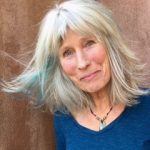
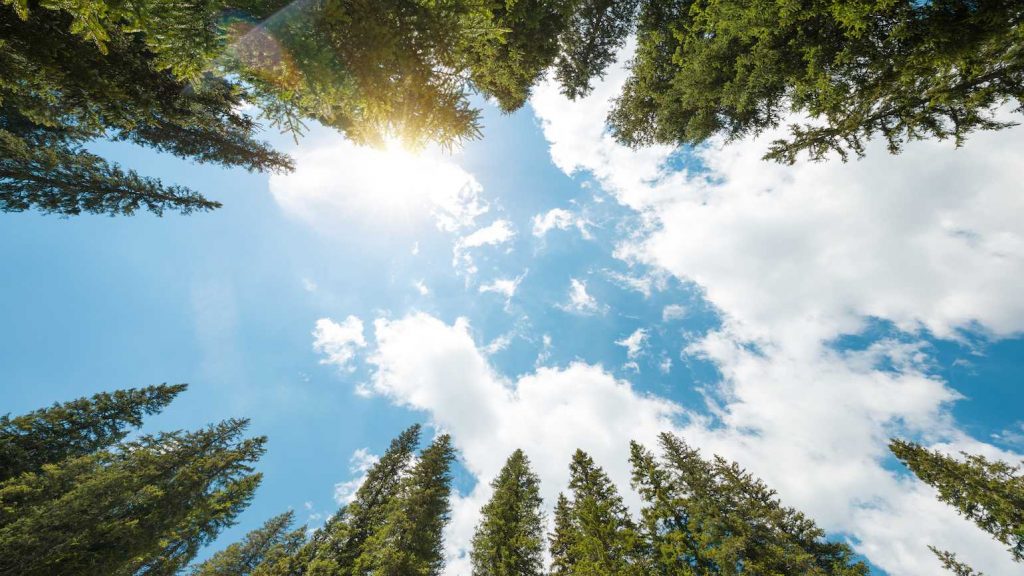
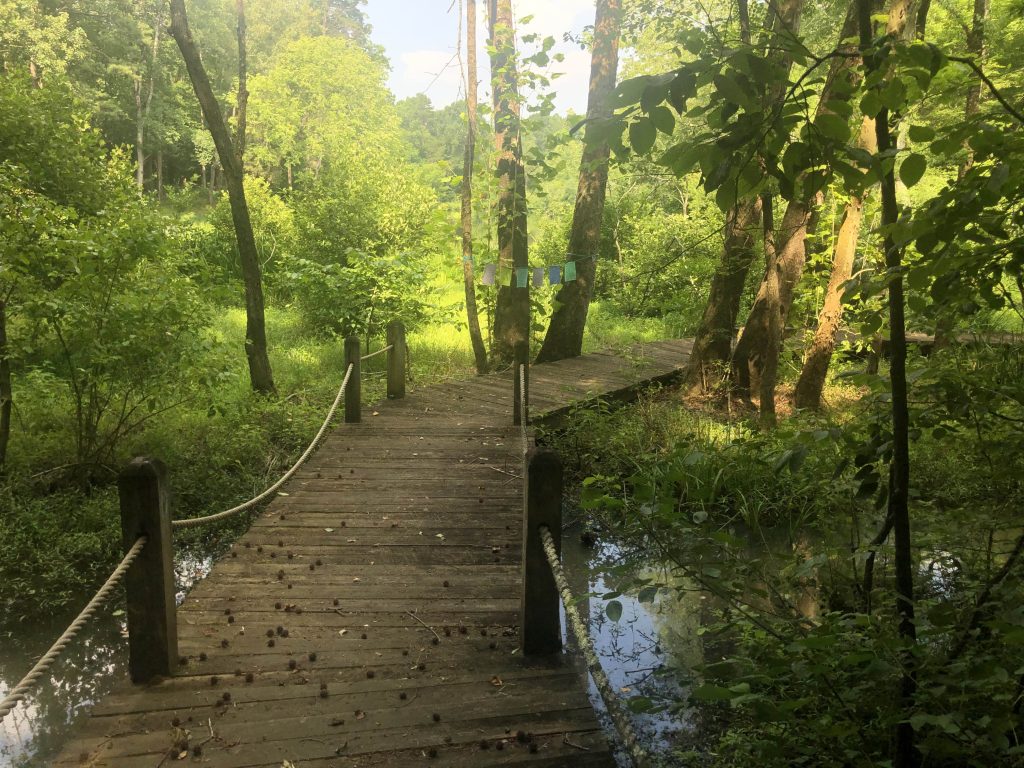
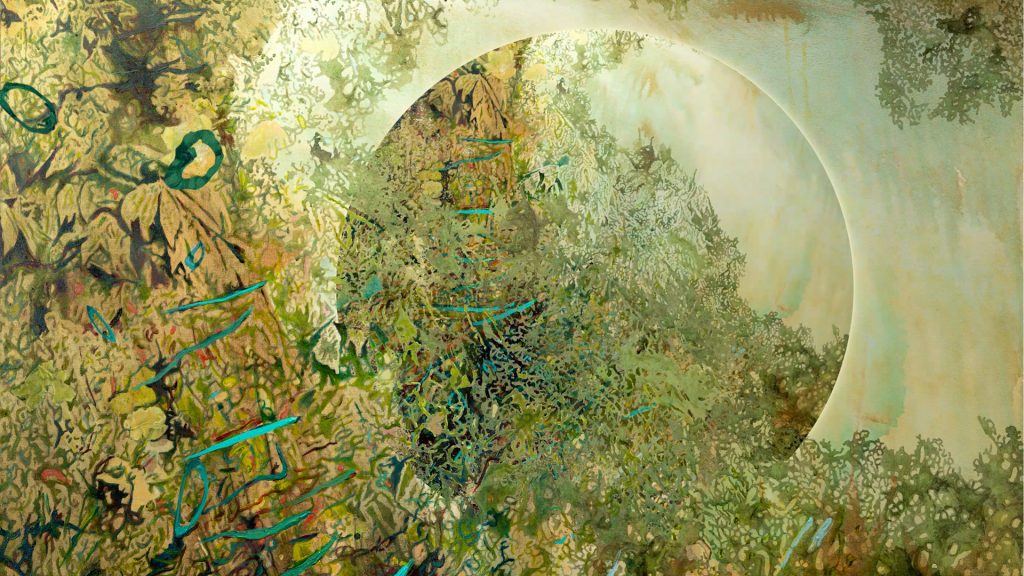
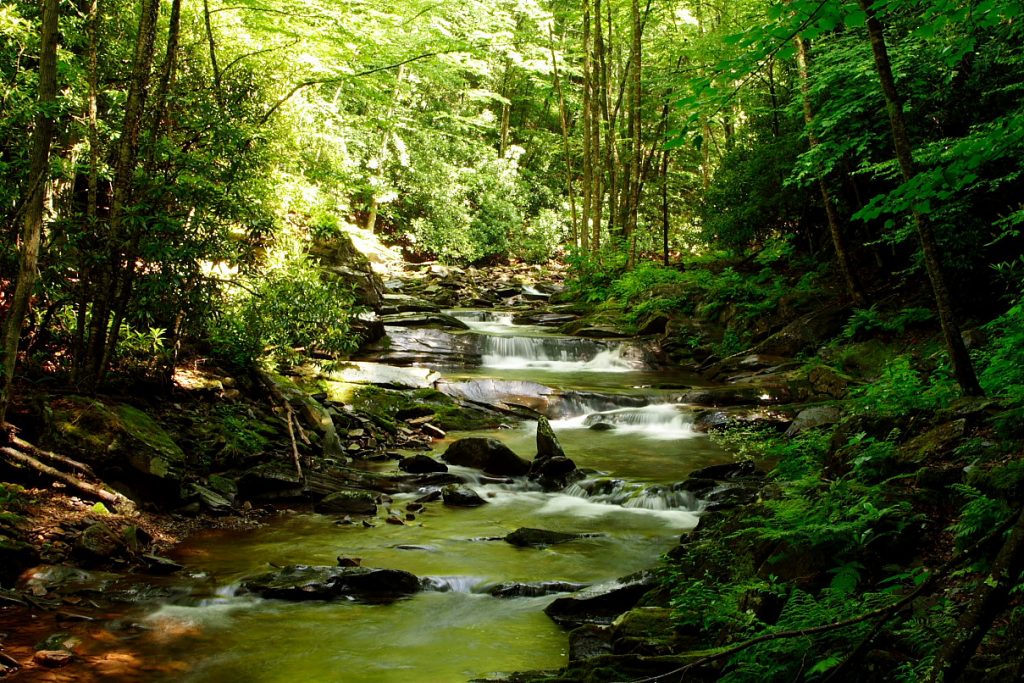
Dear Geneen Marie Haugen,
We are allies. My husband and I have spent many years wandering arctic wilderness, filming and writing books. I am a hermit by temperament, but my work reaches and inspires, as does yours. The time of the lone wolf is passed. If we are to be a voice for wildness in our species and our world, the time is now. Take a look at our recent work, and let me know if there is a way to collaborate. ReWilding Kernwood: A Legacy of Grace (18 minutes) https://vimeo.com/311379347 . I will be at the May 3-5 Global Earth Repair Conference. Rebecca Wildbear can speak for me.
In Gratitude, Jean Aspen
Hi, Maureen.
Heartful piece, thank you.
It occurs to me, that the apple doesn’t fall far from the tree, and we, we presume, are earth’s most prodigious apple. Whatever she is about, we are about, in all our growing imperfections. She is figuring herself out, in part through us.
Here in the desert superbloom now, every living space is reaching its florescence up as high as it can, seeking to fulfill itself in communion with others. How proud and excited earth must be to be sending minute pieces of herself to visit her neighbors and even beyond, and with powerful eyes searching far into space, reaching out for others, the first to have done so, as far as she knows, in her currently awareable space.
She will not fail us, nor we her
We wander out into her, and open up. She shares with us her ineffable essence. And we must now figure out how to manifest that essence more faithfully within our constricted human world.
She will always be with us, in us, and we with her; we’ll figure this out, little by little, brailleing it, together.
Saludos
Bob
alum, Universe Story
Dear Friends,
I am so grateful for these words, that resound so deeply in my Soul. Yes, we have been gifted with our imagination. This piece is so beautiful and poetic. Thank you.